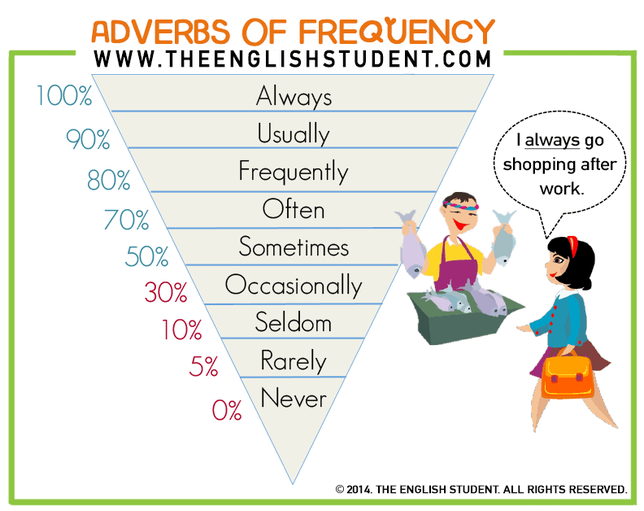Take a look at this scale below to understand what percentage each adverb means. These are just rough estimates to show the difference between each adverb. Some adverbs are very close to each other. For example, 'seldom' and 'rarely' are very similar.
(1) If the sentence has a verb, we put the adverb after the subject and before the verb.
" Peter rarely eats breakfast."
The adverb (rarely) is after the subject (Peter) and before the verb (eats).
(2) If the sentence has a 'be' verb (am, is), we place the adverb after it.
"I am always a careful driver."
The adverb (always) is after the 'be' verb (am).
(3) If the sentence has more than one verb, the adverb should go before the main verb
"He has never eaten Thai food"
The adverb (never) is before the main verb (eaten)
(4) If the sentence is a question or in the negative form, the adverb should go before the main verb.
"You don't always carry cash, do you?"
"My teacher doesn't usually give so much homework."
The adverbs (always, usually) is before the main verbs (carry, give)
So, regardless of the sentence, the easiest way is to remember that adverbs of frequency are usually placed before main verbs (eat, carry, jump, sit) and after 'be' verbs (am, are, is, was)
Can you share with us how often you eat at a restaurant during the weekends?
Related Lessons:
Adverbs of Manner
What Do You Eat For Breakfast?
Order of Adjectives










 RSS Feed
RSS Feed
